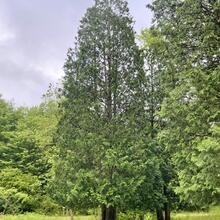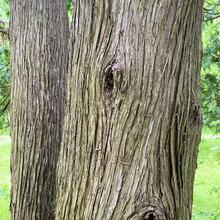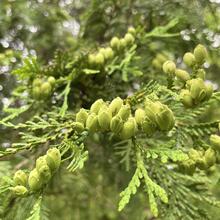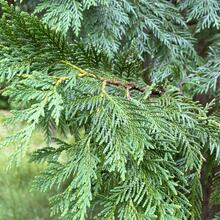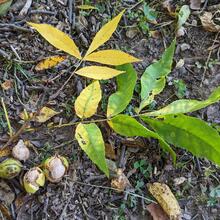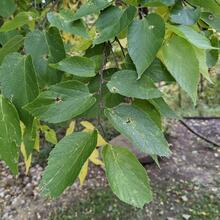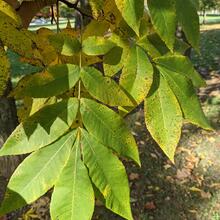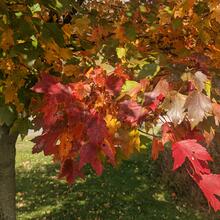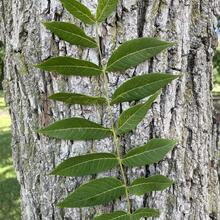Thuja occidentalis
Cupressaceae
Naturally found on calcareous sites in Ohio, but grows on a range of soil and moisture conditions. Useful as a windbreak and often planted as a living fence. Frequently damaged by deer browse. In cultivation, many varieties in tree or shrub form.
Summary
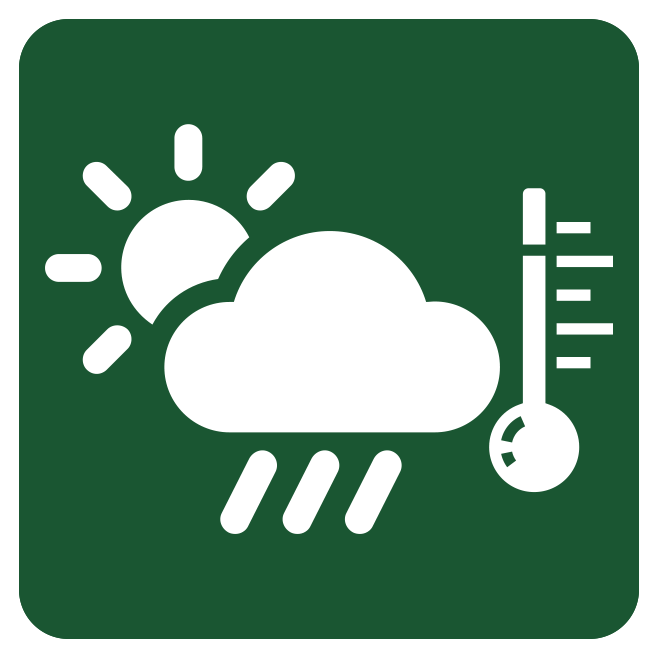 Climate Tolerance
Climate Tolerance
NA
Wildlife Benefits
Seeds food source for birds; provides winter cover
Pollination Type
Wind
Plant Hardiness Zones
2 to 7
# Butterfly/Moths that use as host
Unknown
Bloom Time
Spring (Apr)
 Shade/Sun Tolerance
Shade/Sun Tolerance
Full Sun to Shade: Receives less than 2 to 6 or more hours of direct sunlight
 Maximum Height
Maximum Height
Small (15-40 ft)
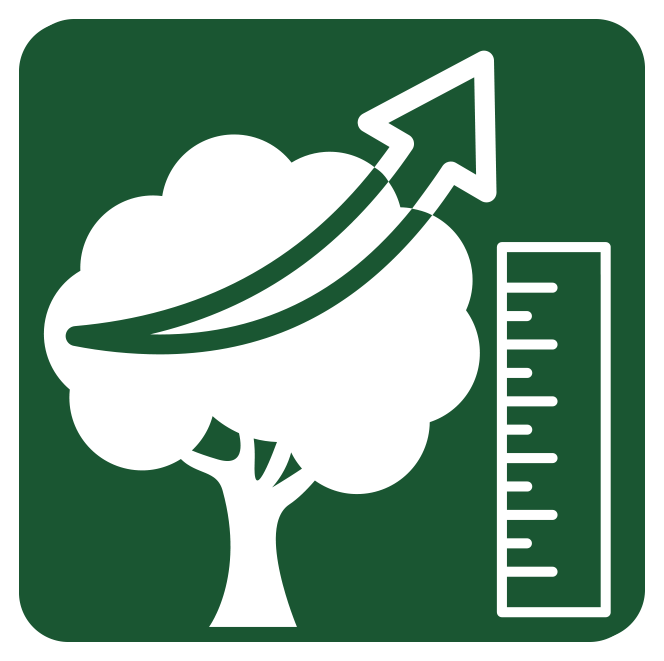 Growth Rate
Growth Rate
Slow: 1 ft or less per year
 Soil Type
Soil Type
Clay: Small sized particles. Long moisture retention and low nutrient availability.
Loam: Equal mix of clay, sand, and silt. Moderate moisture retention and high nutrient availability.
Silt: Medium sized particles. Moderate moisture retention and high nutrient availability.
 Soil Moisture Tolerance
Soil Moisture Tolerance
Moist - Dry: Soil can be damp for periods of time and can retain little to no water for periods of time
Root - Fungal Association
Arbuscular mycorrhizae: Symbiotic relationship with fungi that exist on inside of plant root cells, facilitating nutrient uptake
Pest & Pathogen Risks
Low; Leaf miner, spider mites
 Urban Stress Tolerance
Urban Stress Tolerance
Medium: Tree can adapt to a few urban conditions and will generally grow well
Drought Tolerance
Sensitive: Tree will become stressed during periods of drought
Coefficient of Conservatism
9
Native Status
OH-Native: Species is native to Ohio
NatureServe G-rank
G5
Plant Community Type
- Beech Mixed: Absent
- Oak Mixed: Absent
- Alluvial: Absent
- Red Maple Mixed: Absent
- Ruderal: Absent
- Urban Tree Cover: Common
Bloom Color
Brown
Green
Yellow
Form
Tree
 Lifespan
Lifespan
Long: Greater than 250 years
Soil pH
Circumneutral (pH 6.8-7.2)
Wetland Indicator Status
FACW: Facultative Wetland, usually occurs in wetlands, but may occur in non-wetlands
Soil Compaction Tolerance
Tolerant: Tree will not become stressed from soil being compacted
Heat Tolerance
Sensitive: Tree will become stressed from increased temperature due to urban heat island effects
Salt Tolerant
Tolerant: Tolerant to both aerial salt spray and salt present in soil
Native County Status
Cuyahoga
Lorain
Medina
Summit
IUCN Red List Assessment
Least Concern
